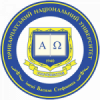Coach-Parent Relationship in Children’s Football Preparation: Analysis of the Best International Pedagogical Practices
DOI:
https://doi.org/10.15330/jpnu.11.1.147-154Keywords:
youth football, coach-parent relationship, physical education, educational developmental environment, competitive practice, international experienceAbstract
The article highlights the importance of a supportive family environment in preparing children for physical education and sports activities. It argues for the significance of instilling health-preserving skills in children from an early age. Furthermore, it stresses the importance of promoting the ideals of a healthy lifestyle and enhancing physical, mental, spiritual, and social well-being by engaging students in football education and training. Based on the analysis of sports and pedagogical experience in the training of young players in various countries around the world, both positive and negative aspects of the relationship between the family and the coach in youth football are outlined. The authors have chosen for analysis countries such as Brazil, the Netherlands, Spain, Italy, and others, which have deep-rooted football traditions and notable expertise in education and training in competitive practice. The article clarifies that in these countries, considerable emphasis is placed on parental engagement in their child’s physical development, with coaches playing pivotal roles in facilitating and directing sports activities, thereby nurturing a constructive developmental atmosphere in youth football. Specific characteristics contributing to the establishment of such an environment as a crucial pedagogical requirement for effective training have been delineated. Crucial aspects of coach-parent collaboration in children’s football activities in foreign countries have been revealed, including open communication to enhance sports skills acquisition; inviting parents to training sessions and matches to support the child and create a positive game atmosphere; arranging various events to foster a friendly atmosphere among all parents, the children’s team, and the coach; developing technical skills in competitive sports practice with parental involvement; taking into account the mental characteristics of the country, its cultural specifics in physical education (discipline, responsibility, openness to interaction), etc. It’s been proved that the factors of pedagogical cooperation between the coach and children’s parents help create an effective sports environment for young footballers' training and development.











